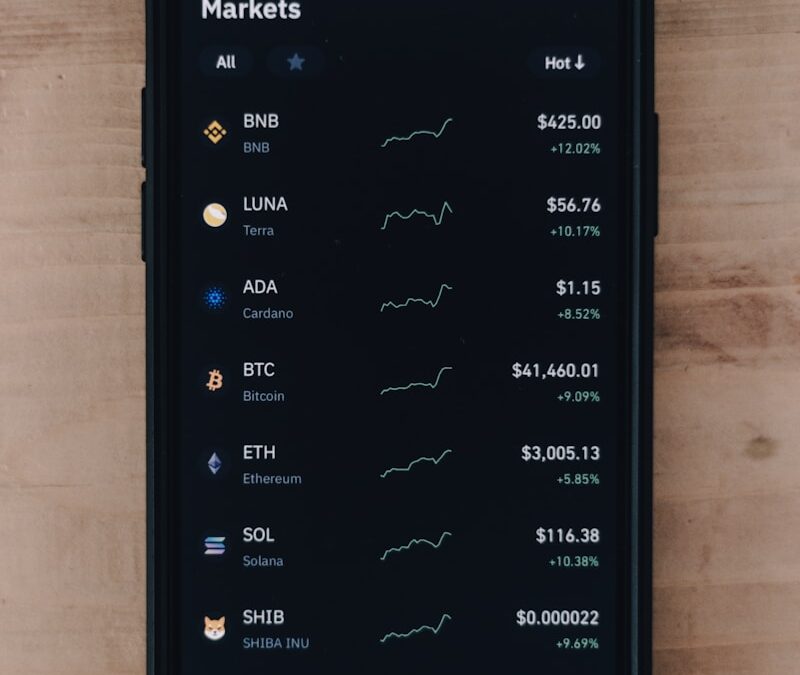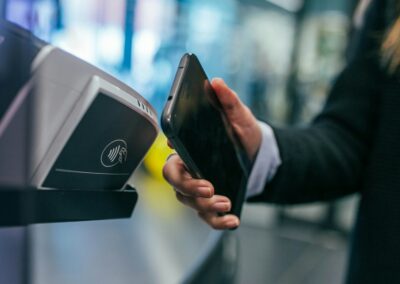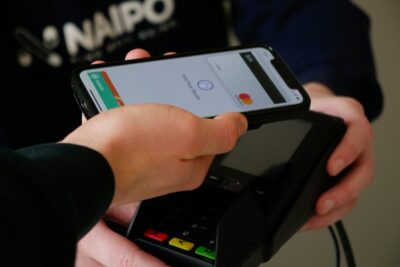Developing Scalable and Secure Blockchain Solutions for Global Transactions
Introduction to Blockchain-Based Solutions for Cross-Border Payments
The integration of blockchain-based solutions for cross-border payments is transforming the financial landscape, offering unprecedented efficiency, security, and scalability. In rapidly advancing regions like Saudi Arabia and the UAE, where cross-border transactions are frequent, blockchain technology is poised to address longstanding issues related to cost, speed, and transparency. This article explores the challenges and opportunities in developing and deploying scalable and secure blockchain solutions for cross-border payments, highlighting their potential to revolutionize global financial transactions.
Challenges in Developing Blockchain-Based Solutions
One of the foremost challenges in developing blockchain-based solutions for cross-border payments is achieving scalability. Blockchain networks, particularly those relying on proof-of-work consensus mechanisms, often face limitations in processing large volumes of transactions quickly. This bottleneck can lead to delays and increased transaction costs, which are counterproductive to the goals of efficiency and affordability in cross-border payments.
Another significant challenge is ensuring the security of blockchain networks. While blockchain inherently offers robust security features, such as cryptographic hashing and decentralized ledgers, it is not immune to cyber threats. Attacks like 51% attacks, where a single entity gains majority control over the network, can undermine the integrity of the blockchain. Therefore, continuous monitoring and advanced security protocols are necessary to protect against such vulnerabilities.
Regulatory compliance is also a critical hurdle. The legal and regulatory landscape for blockchain technology is still evolving, particularly in regions like Riyadh and Dubai. Ensuring that blockchain solutions comply with international financial regulations and local laws requires collaboration with regulators and legal experts. This compliance is essential to gaining the trust of financial institutions and users, thereby facilitating broader adoption.
Opportunities in Blockchain-Based Cross-Border Payments
Despite the challenges, the opportunities presented by blockchain-based solutions for cross-border payments are significant. One of the primary benefits is the potential for cost reduction. Traditional cross-border payment systems often involve multiple intermediaries, each adding their fees, which can significantly increase the cost of transactions. Blockchain technology eliminates the need for these intermediaries by facilitating direct peer-to-peer transactions, thus reducing fees and making cross-border payments more affordable.
Another major opportunity is the improvement in transaction speed. Traditional cross-border payments can take several days to process due to the involvement of multiple banks and clearinghouses. Blockchain-based transactions, however, can be completed in a matter of minutes, regardless of the geographical distance between the sender and the recipient. This speed is particularly advantageous for businesses and individuals in the UAE and Saudi Arabia, where timely financial transactions are crucial for economic activities.
Furthermore, blockchain offers enhanced transparency and traceability. Each transaction on a blockchain is recorded on a public ledger, providing a clear and immutable record. This transparency reduces the risk of fraud and errors, ensuring that both parties in a transaction can verify the transaction details independently. For financial institutions in Riyadh and Dubai, this level of transparency can lead to increased trust and confidence in cross-border payment systems.
Leveraging Advanced Technologies for Blockchain Solutions
To overcome the challenges and maximize the opportunities in blockchain-based solutions for cross-border payments, integrating advanced technologies such as Artificial Intelligence (AI) and Machine Learning (ML) is crucial. AI and ML can enhance the efficiency and security of blockchain networks by automating transaction verification processes and detecting fraudulent activities in real-time.
In Saudi Arabia and the UAE, where the adoption of AI is rapidly growing, leveraging these technologies can provide a competitive edge. For instance, AI-driven algorithms can optimize blockchain network performance by predicting transaction loads and adjusting resource allocation dynamically. This optimization ensures that the network remains scalable and efficient even during peak transaction periods.
Additionally, incorporating AI and ML can enhance the security of blockchain networks. These technologies can identify unusual patterns and potential threats, enabling proactive measures to prevent attacks. By continuously learning from transaction data, AI and ML can improve the accuracy and reliability of fraud detection systems, thereby safeguarding the integrity of cross-border payments.
Leadership and Management in Blockchain Deployment
Effective leadership and management are pivotal in the successful deployment of blockchain-based solutions for cross-border payments. Business executives and mid-level managers must possess a comprehensive understanding of blockchain technology and its implications for their organizations. In regions like Riyadh and Dubai, where innovation and technological adoption are priorities, leadership must guide their teams through the complexities of blockchain integration.
Project management principles, including setting clear goals, defining milestones, and allocating resources effectively, are essential in managing blockchain projects. Regular risk assessments and contingency planning ensure that potential issues are identified and addressed promptly. This structured approach enhances the likelihood of successful deployment and ensures that blockchain solutions deliver their intended benefits.
Moreover, fostering a culture of continuous learning and innovation within organizations is crucial. Encouraging employees to develop skills in blockchain and related technologies can drive innovation and improve the quality of solutions. Collaboration with external experts and participation in industry forums can also provide valuable insights and best practices, further enhancing the effectiveness of blockchain initiatives.
Conclusion
In conclusion, the development and deployment of blockchain-based solutions for cross-border payments present both challenges and opportunities. While scalability, security, and regulatory compliance pose significant hurdles, the potential benefits in terms of cost reduction, transaction speed, and transparency are substantial. By leveraging advanced technologies like AI and maintaining strong leadership and project management practices, businesses in Saudi Arabia, the UAE, and beyond can harness the power of blockchain to revolutionize cross-border payments. As the adoption of blockchain technology continues to grow, developing scalable and secure solutions will be key to achieving sustainable business success and technological advancement.
#blockchain #crossborderpayments #securetransactions #AIinfinance #businesssuccess #technologyintegration #Riyadh #Dubai #leadership #projectmanagement























